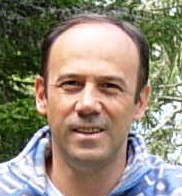Studying at the University of Verona
Here you can find information on the organisational aspects of the Programme, lecture timetables, learning activities and useful contact details for your time at the University, from enrolment to graduation.
Academic calendar
The academic calendar shows the deadlines and scheduled events that are relevant to students, teaching and technical-administrative staff of the University. Public holidays and University closures are also indicated. The academic year normally begins on 1 October each year and ends on 30 September of the following year.
Course calendar
The Academic Calendar sets out the degree programme lecture and exam timetables, as well as the relevant university closure dates..
| Period | From | To |
|---|---|---|
| primo semestre triennali | Sep 19, 2016 | Jan 13, 2017 |
| secondo semestre triennali | Feb 20, 2017 | Jun 1, 2017 |
| Session | From | To |
|---|---|---|
| Prove intermedie primo semestre | Nov 7, 2016 | Nov 11, 2016 |
| Appelli esami sessione invernale | Jan 16, 2017 | Feb 17, 2017 |
| Prove intermedie secondo semestre | Apr 10, 2017 | Apr 13, 2017 |
| Appelli esami sessione estiva | Jun 5, 2017 | Jul 7, 2017 |
| Appelli esami sessione autunnale | Aug 28, 2017 | Sep 15, 2017 |
| Session | From | To |
|---|---|---|
| Sessione autunnale | Nov 30, 2016 | Dec 1, 2016 |
| Sessione invernale | Apr 5, 2017 | Apr 7, 2017 |
| Sessione estiva | Sep 11, 2017 | Sep 13, 2017 |
| Period | From | To |
|---|---|---|
| Vacanze natalizie | Dec 23, 2016 | Jan 5, 2017 |
| Vacanze pasquali | Apr 14, 2017 | Apr 18, 2017 |
| Vacanze estive | Aug 7, 2017 | Aug 25, 2017 |
Exam calendar
Exam dates and rounds are managed by the relevant Economics Teaching and Student Services Unit.
To view all the exam sessions available, please use the Exam dashboard on ESSE3.
If you forgot your login details or have problems logging in, please contact the relevant IT HelpDesk, or check the login details recovery web page.
Academic staff
Baronchelli Adelaide
 adelaide.baronchelli@univr.it
adelaide.baronchelli@univr.it
Borello Giuliana
 giuliana.borello@univr.it
giuliana.borello@univr.it
 045 802 8493
045 802 8493
 roberto.fini@univr.it
roberto.fini@univr.it
 tamara.fioroni@univr.it
tamara.fioroni@univr.it
 simona.gamba@univr.it
simona.gamba@univr.it
 vania.licio@univr.it
vania.licio@univr.it
 francesca.rossignoli@univr.it
francesca.rossignoli@univr.it
 0444 393941 (Ufficio Vicenza) 0458028261 (Ufficio Verona)
0444 393941 (Ufficio Vicenza) 0458028261 (Ufficio Verona)
 fabio.sartori@univr.it
fabio.sartori@univr.it
 giuseppe.trabucchi@univr.it
giuseppe.trabucchi@univr.it
Study Plan
The Study Plan includes all modules, teaching and learning activities that each student will need to undertake during their time at the University.
Please select your Study Plan based on your enrollment year.
1° Year
| Modules | Credits | TAF | SSD |
|---|
2° Year activated in the A.Y. 2017/2018
| Modules | Credits | TAF | SSD |
|---|
3° Year activated in the A.Y. 2018/2019
| Modules | Credits | TAF | SSD |
|---|
| Modules | Credits | TAF | SSD |
|---|
| Modules | Credits | TAF | SSD |
|---|
| Modules | Credits | TAF | SSD |
|---|
| Modules | Credits | TAF | SSD |
|---|
Legend | Type of training activity (TTA)
TAF (Type of Educational Activity) All courses and activities are classified into different types of educational activities, indicated by a letter.
Type D and Type F activities
| years | Modules | TAF | Teacher |
|---|---|---|---|
| 1° | Advanced Excel Laboratory (Vicenza) | D |
Marco Minozzo
(Coordinator)
|
| 1° | Excel Laboratory (Vicenza) | D |
Marco Minozzo
(Coordinator)
|
Organization Studies (2018/2019)
Teaching code
4S00082
Teacher
Coordinator
Credits
6
Language
Italian
Scientific Disciplinary Sector (SSD)
SECS-P/10 - ORGANIZATION AND HUMAN RESOURCE MANAGEMENT
Period
secondo semestre lauree triennali dal Feb 18, 2019 al May 31, 2019.
Learning outcomes
The course aims to provide students knowledge about the basic elements and fundamental concepts for understanding how the organizations work.
To this end, the course offers the conceptual and operational tools to read and design the organizational structures and the organization of work. It also proposes to develop the skills to understand the different phenomena typical of the organizational culture.
At the end of the lessons, the student are able to understand the basic concepts of business organization, to know the main categories of organizations as well as to understand and recognize the variables for the development of a company. In addition, the student will be able to recognize the opportunities arising from new technologies and the socio-economic environment that facilitate the development of new business models
Program
Organization Theories and Models; Frank Gilbreth and Lillian Moller Gilbreth; Organizational Behaviour; Strain, Industrial Monotony, Efficiency and Productivity; Mayo’s Human Relations Movement; Human Resources (Herzberg, Mc Gregor); Socio-Technical Systems; Bounded Rationality (Simon) and Organizational Decision Making; Organizational Design; Environment; Human Resources Management; Entrepreneurship.
Books:
- Favretto, G. (2010). Organizzazione del lavoro per lo sviluppo delle risorse umane. Verona: QuiEdit (capp.1, 7, 8, 9, 10, 11, 12, 13).
- Daft R.L. (2013). Organizzazione Aziendale (Quinta Edizione). Milano: Apogeo (capp. 1, 2, 3, 4, 7)
Additional documentation provided on e-learning platform.
Traditional lessons integrated with active learning and interventions by experts.
| Author | Title | Publishing house | Year | ISBN | Notes |
|---|---|---|---|---|---|
| Daft, R.L. | Organizzazione Aziendale (Edizione 5) | APOGEO | 2013 | Capitoli: 1, 2, 3, 4, 7 | |
| Favretto, G. | Organizzazione del Lavoro per lo Sviluppo delle Risorse Umane | QuiEdit: Verona | 2010 | Capitoli: 1, 7, 8, 9, 10, 11, 12, 13 |
Examination Methods
Written examination; Oral examination for Erasmus students. There is intermediate exam (test multiple choice).
Other information on the exam provided (e-learning platform)
Career prospects
Module/Programme news
News for students
There you will find information, resources and services useful during your time at the University (Student’s exam record, your study plan on ESSE3, Distance Learning courses, university email account, office forms, administrative procedures, etc.). You can log into MyUnivr with your GIA login details: only in this way will you be able to receive notification of all the notices from your teachers and your secretariat via email and soon also via the Univr app.




























